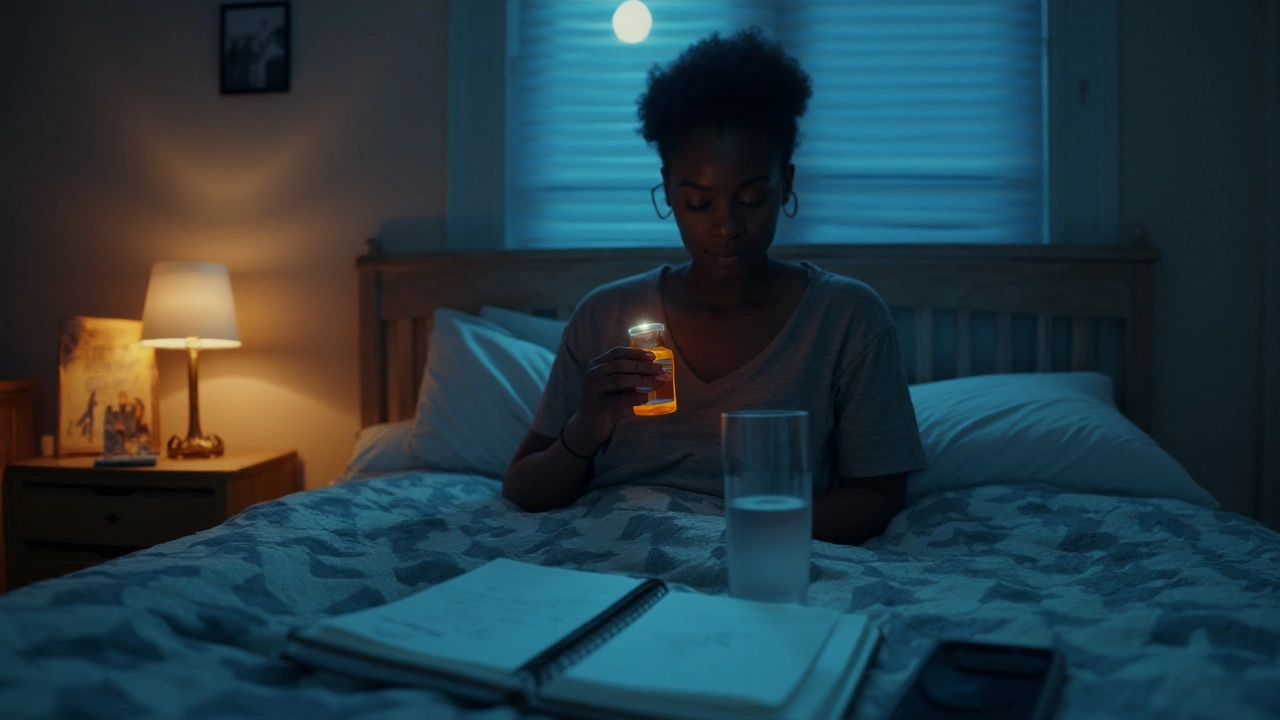Phenytoin and Insomnia – What You Need to Know
If you take phenytoine for seizures, you might have noticed trouble falling asleep or staying asleep. That feeling is more common than you think, and it’s not something you have to accept as “just a side effect.” Understanding why the drug interferes with sleep can help you take steps to feel rested again.
Why Phenytoin Might Mess With Your Sleep
Phenytoin works by calming brain activity that leads to seizures. In doing so, it also nudges other chemicals in your nervous system, especially the ones that control alertness. When those chemicals get a push, you can feel wired at night. The drug can also raise cortisol levels, a stress hormone that makes falling asleep harder. Some people notice vivid dreams or nighttime restlessness, which adds to the sleep struggle.
It’s worth noting that not everyone on phenytoin gets insomnia. Genetics, age, other meds, and lifestyle all play a part. If you’re also drinking coffee late in the day or using screens before bed, the medication’s impact can feel stronger.
Practical Tips to Get Better Rest
First, talk to your pharmacist about the timing of your dose. Taking phenytoin earlier in the evening rather than right before bedtime often helps. Pair that with a consistent sleep schedule – go to bed and wake up at the same time even on weekends.
Create a wind‑down routine: dim lights, gentle stretches, or reading a paper book for 20 minutes. Avoid bright screens, caffeine, and heavy meals after dinner. If you can’t fall asleep within 20 minutes, get out of bed and do a quiet activity until you feel sleepy; staying in bed awake can reinforce insomnia.
Sometimes a short, over‑the‑counter sleep aid like melatonin works well, but check with your doctor first because it can interact with seizure control. Herbal teas such as chamomile or valerian root are low‑risk options that many find soothing.
Keeping a sleep diary for a week can reveal patterns – note when you take phenytoin, what you ate, and how well you slept. This record gives your doctor concrete data to decide if a dose adjustment or a switch to another seizure medication is needed.
If you’ve tried the basics and still wake up exhausted, it’s time to call your doctor. Persistent insomnia can worsen seizures, affect mood, and lower quality of life, so professional guidance matters.
When to Call Your Doctor
Reach out if you notice any of these: sleeplessness lasting more than two weeks, frequent daytime drowsiness, worsening seizure control, or intense anxiety at night. Your doctor may order blood tests to check phenytoin levels; sometimes the dose is simply a bit high for your body.
In some cases, switching to another anti‑seizure drug like levetiracetam or carbamazepine can reduce sleep problems while still keeping seizures in check. Your doctor will weigh benefits and risks before making any change.
Remember, you don’t have to suffer through insomnia while taking phenytoin. With a few adjustments and the right medical advice, you can get back to a regular night’s rest and keep your seizure control steady.
Phenytoin and Sleep: How This Epilepsy Drug Can Disrupt Your Nights (and What to Do)
Waking at 3 a.m. since starting phenytoin? Learn how phenytoin affects sleep, how common it is, what to watch for, and practical fixes you can use today.
